 Thus He spoke and so it was. When the priest speaks in persona Christi, in the person of Christ, it is Christ Himself Who speaks and it is Christ Himself who transforms the bread and wine, as was once offered by Melchisedek of old, into His Body and Blood. The Word of God does not return empty but is effective, Scripture says. So Christ says and so it is and so we believe on the testimony of Christ Jesus and Holy Scripture."
Thus He spoke and so it was. When the priest speaks in persona Christi, in the person of Christ, it is Christ Himself Who speaks and it is Christ Himself who transforms the bread and wine, as was once offered by Melchisedek of old, into His Body and Blood. The Word of God does not return empty but is effective, Scripture says. So Christ says and so it is and so we believe on the testimony of Christ Jesus and Holy Scripture."
Wow, I thought. Powerful stuff. My friend, for a moment anyway, thought so too. We knelt in silence and awe as the priest consecrated the offerings of bread and wine into the Real Body and Blood of Jesus Christ. The lines of people formed and they went up to receive Jesus Himself. Each and every one of them was now Christopher, a Christ-bearer, every one was now an Ark of the New Covenant, bearing God within themselves.
Tantum ergo was then sung and the priest lifted up the monstance to bless the people, who were moved to tears by the reality of the Real Presence, by Jesus Himself. Amidst the strains of the Divine Praises. A shrill sound was heard. A cellphone rang and the owner, totally oblivious, picks it up and starts yakking away. Startled out of my reverie, I started to look around me and noticed some people walking out of the Church, some kids talking to each other, a man looking at his watch, another family moving out of their pew, some folks who were not singing along but merely stared in silence, a server yawning away and another looking thoroughly bored out of his mind.  My friend looked, and saw as well.
My friend looked, and saw as well.
Mass was over and as we tried to make our way out of the parking lot, a queue had formed and suddenly a car cut into the line and several other cars started honking loudly. A lady then cut in front of me. I gave way but the car behind me started to aggressively tail me, honking.
I saw it coming and finally, my friend said it. "You can't seriously believe that Jesus is truly present in the Eucharist.  If those people had really received Jesus Christ, they would not behave that way. They would change. Look at the world. There are a billion Catholics and most of them receive the Eucharist every week and millions do it daily. If they really did receive Jesus, the world would be changed, they would be changed, and they would all be saints. They would certainly not act as those people did in Church just now, so apathetic and so uncaring. An encounter with Jesus changes people, changes things. These folks aren't any better than the non-Christians. You can't seriously believe that Jesus is truly present in the Eucharist, can you?"
If those people had really received Jesus Christ, they would not behave that way. They would change. Look at the world. There are a billion Catholics and most of them receive the Eucharist every week and millions do it daily. If they really did receive Jesus, the world would be changed, they would be changed, and they would all be saints. They would certainly not act as those people did in Church just now, so apathetic and so uncaring. An encounter with Jesus changes people, changes things. These folks aren't any better than the non-Christians. You can't seriously believe that Jesus is truly present in the Eucharist, can you?"
CS Lewis and GK Chesterton once said as much, that the best argument against Christianity are Christians themselves. Here, the argument is rehashed that the best argument against the Real Presence of Christ in the Eucharist is the attitude and lifestyle of the many Catholics who claim to believe in Him and receive Him and are yet no different from baptized pagans.
So, what do you think? Can it be true? Is Jesus truly present in the Most Holy Eucharist? Then why did the people who partook of His Body and His Blood behave in that manner? Why were they not changed by the encounter? Why did they still behave like a bunch of yahoos?
Perhaps an episode from Holy Scripture would be illustrative:
As [Jesus] went, the crowds were pressing against Him.
And a woman who had a haemorrhage for twelve years, and could not be healed by anyone, came up behind Him and touched the fringe of His cloak, and immediately her haemorrhage stopped.

And Jesus said, "Who is the one who touched Me?" And while they were all denying it, Peter said, "Master, the people are crowding and pressing in on You." But Jesus said, "Someone did touch Me, for I was aware that power had gone out of Me."
When the woman saw that she had not escaped notice, she came trembling and fell down before Him, and declared in the presence of all the people the reason why she had touched Him, and how she had been immediately healed.
And He said to her, "Daughter, your faith has made you well; go in peace."
- St. Luke 8:42b-48
So, Jesus was there in the flesh, so to speak. He's walking among a huge crowd of people who were pushing and pressing all around him. Standing there amidst the throng of surging humanity, He goes and says "Who touched me?". His Apostles must have been thinking "Uh huh...right... He's asking who touched Him. Perhaps the heat has got to Him ". ”Hey Master", they're thinking, "Who's touching you? Hello, they all are, they're all touching you." But being the polite disciples that they are, they put their thoughts nicely by stating the obvious: "Master, the people are crowding and pressing in on You."
But Jesus knew that someone had touched Him, someone different from the others. For He felt power go out from Him. So the woman comes forth, confesses and is sent away in peace.
Now, what does this account tell us?
When people complain about how people seem to be untransformed despite an encounter with the Risen Christ in the Catholic Church, my response would be, so what? Nothing has changed. When the Lord Jesus Christ walked the earth, the same thing happened. Multitudes saw Him, the masses heard Him preach, many touched Him but only a few, so very few, were healed. Only a small minority of the vast crowds were changed, were transformed by the experience, only a few became disciples.
If it happened two thousand years ago, then why are we so surprised when it happens today?
Let's look at the episode again. What differentiated the woman who was healed, from the throng of people who were not?
St. Matthew tells us this:
And a woman who had been suffering from a hemorrhage for twelve years, came up behind Him and touched the fringe of His cloak;
for she was saying to herself, "If I only touch His garment, I will get well."
But Jesus turning and seeing her said, "Daughter, take courage; your faith has made you well."
-St Matthew 9:20-21
And again, in today's reading from Acts 14, we see this illustrative episode;
At Lystra there was a crippled man, lame from birth,
who had never walked.
He listened to Paul speaking, who looked intently at him,
saw that he had the faith to be healed,
and called out in a loud voice, "Stand up straight on your feet."
He jumped up and began to walk about.
Now we see the missing element. "Daughter, take courage; your faith has made you well." "[S]aw that he had the faith to be healed".
The missing element, the thing that differentiated the woman who was healed from the rest of the masses who touched the Lord Jesus was faith. She had faith in Him and approached Him with an attitude of Faith.
With all the caveats (ie that the Mass is about God, not us; that the Mass is the worship of God, we shouldn’t be trying to ‘get’ something from it etc), I think it’s safe to say that what we’ll ‘get’ out of the Mass and how much the Mass transforms us and conforms us, depends greatly on what we bring to the Mass.
 If we come with an attitude of faith, an attitude of wanting to be conformed to the image of Christ, then we will be. No doubt God has the power to touch and change any person in any condition that He so pleases, regardless of whether the person intended it or not. The Apostle Paul, for example. But He prefers to work using more normal and mundane channels of grace, if there was ever anything mundane about grace. Faith does play a role and one’s willingness to allow God to speak, to listen to His word and to obey will affect the outcome. We need to want to be healed, we need to want to be touched, we need to want to be disciples. God can make flowers bloom from the parched dust of the earth, but as He says in the parable of the sower, the fertile, ready ground is the one where the sown seed will grow most easily and come to bear the most fruit.
If we come with an attitude of faith, an attitude of wanting to be conformed to the image of Christ, then we will be. No doubt God has the power to touch and change any person in any condition that He so pleases, regardless of whether the person intended it or not. The Apostle Paul, for example. But He prefers to work using more normal and mundane channels of grace, if there was ever anything mundane about grace. Faith does play a role and one’s willingness to allow God to speak, to listen to His word and to obey will affect the outcome. We need to want to be healed, we need to want to be touched, we need to want to be disciples. God can make flowers bloom from the parched dust of the earth, but as He says in the parable of the sower, the fertile, ready ground is the one where the sown seed will grow most easily and come to bear the most fruit.
But for many of us, the ground of our hearts is parched and dry, overgrown with thorns and thickets. The Word of God that is proclaimed and preached by the priest falls and dies. We don't want to be healed, we don't want to be transformed. And so we bear no fruit, only thorns. The Word does not take root in us. We leave God’s presence, as the people did 2 thousand years ago, the same people who saw, heard and touched the Lord Jesus. We leave unchanged set is our ways, down the path to destruction.
Should our Faith and belief in the Real Presence of Christ in the Eucharist be shaken by the seemingly unchanged people who have come to Mass week in and week out, who have received the Lord Jesus in Holy Communion? Shall we then be surprised?
Disappointed, perhaps. But surprised? I don’t think so. It was so then, and for some of us, it is still so now. There is nothing new under the sun.
![[Unam Sanctam]](https://blogger.googleusercontent.com/img/b/R29vZ2xl/AVvXsEiymQ2adTjpZ1ABhPBbBBquiPCxeQrc4Jy_97vOikT0wGQeJleriiXQy6ebnb0jrYe-TfvcK77txStB4aIwVAdD41ZdMkVfNtFGC0JX6LBV9B8mfeRZaIAM7Sj-011ag3DiKQzv/s1600/headerdivinemercy.jpg)












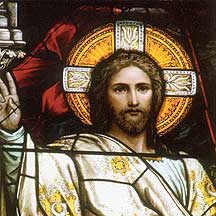







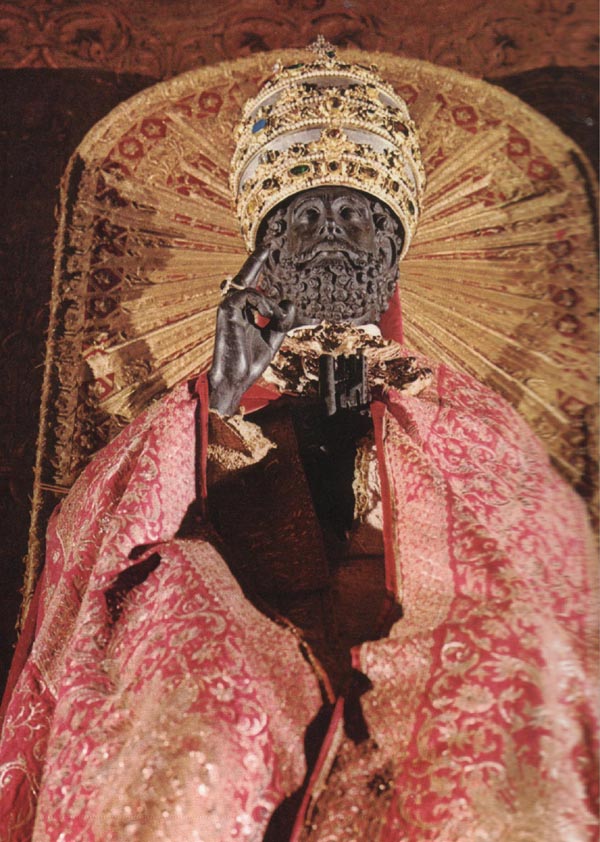
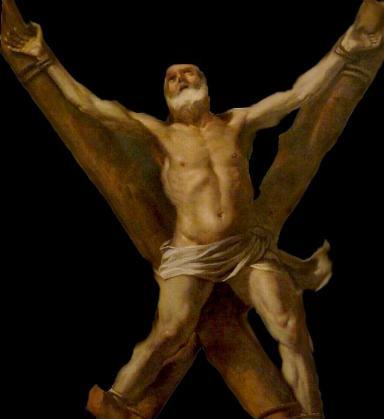




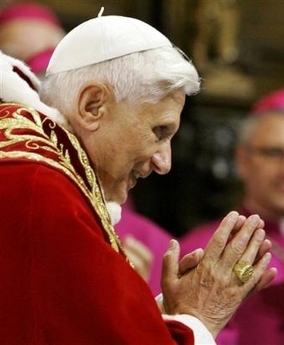






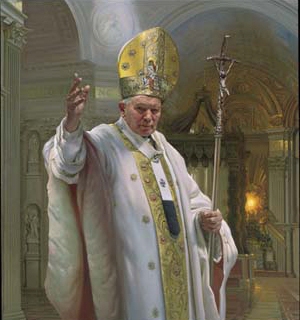
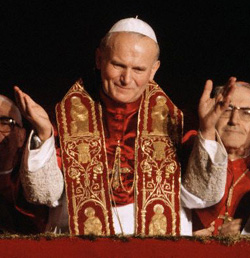
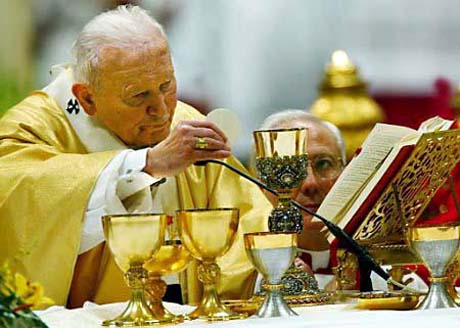







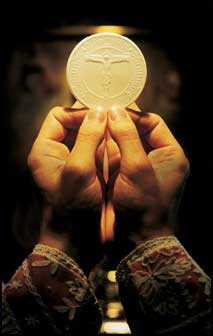
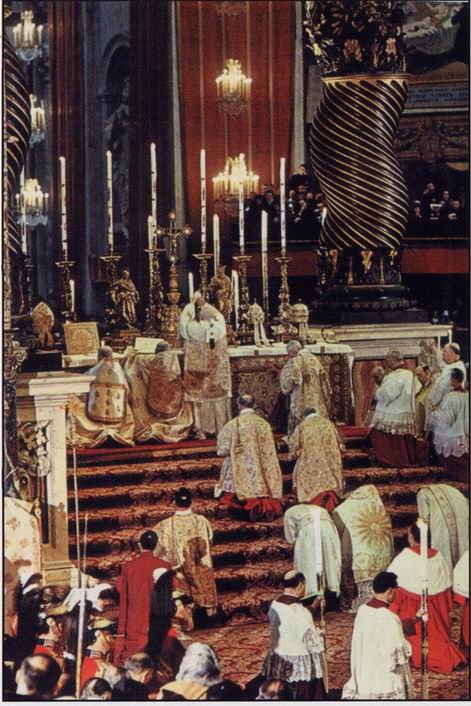

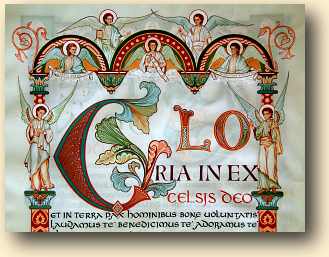

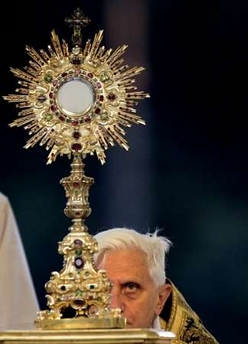


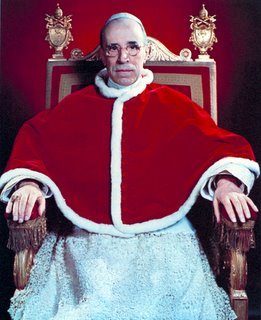




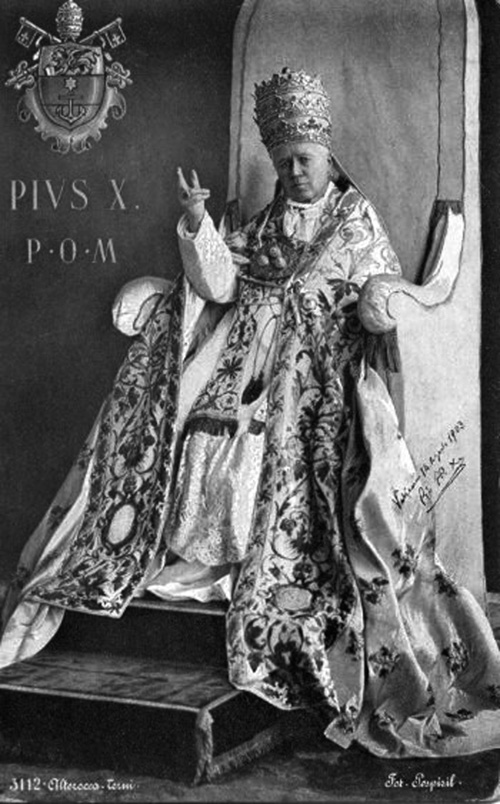



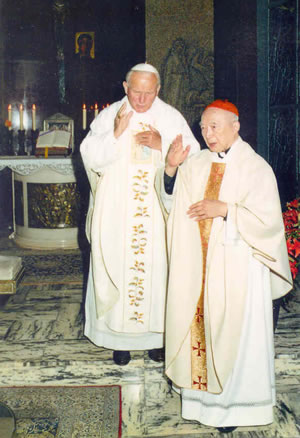






3 comments:
Powerful stuff, Andrew. Though it should come as no surprise to us Catholics; after all, when Our Lord Himself still walked the earth, the apostles were already clamoring for positions of authority in the Church. And lest we forget, sinful man, as a whole, condemned Him to death. It was our sins that drove the nails, our pride that flogged His back, our hatred and arrogance that pricked the crown of thorns on His head.
The human race, by nature, is imperfect. We are characterized more by attrition and concupiscence than we are of virtue or contrition. It is a sad and sobering thought, but true nonetheless. Sometimes, I wonder why Our Lord even bothers coming to our altars if only to be faced with such impiety and irreverence. But then again, Scripture tells us that He came to save the sinners, and not the saved. And to this day, He is patient with us, even if we are so undeserving of the holy sacraments.
One of the most scandalous things I've ever seen happened at Mass some seven years ago. This spoiled brat in front of me was yakking away during the entire homily, and being an @$$hole in general. Come communion time, he had the gall to receive in the hand-- and, returning to his seat, began playing with the host. The worst part was that he was directly within sight of the priest. I fought the urge to bash his head in, but I realized, would I be righting a sacrilege by further creating another scandal, in church, of all places?
The world truly is a strange place. As I fought to restrain myself, I remembered Our Lord, who, even on the cross, continued to bless those who sought His death. That, perhaps, is what Christianity really is-- unclassifiable, incomprehensible and ultimately heartbreaking.
great post, amazing post in fact. I just discovered your blog and its quite great! God bless,
oh! an you are now officially invited to my blog(s) :)
Haha... Arch, I've had my share of wanting to bash people in as well. And they weren't always kids... or lay people =)
I think that one of the most profound truths that the Christian faith teaches is that 'God loves me'. It is not merely a corporate love that God has, for His people, but a singular individual love that He has, for me, who am most unworthy. He still loves me in spite of all my failings and faults and calls to me to to repent and love Him back. It's amazing, if we can fully grasp it.
And the fact is that, not only does He love unworthy me, but He also loves those people whom I wanna bash in. He loves them too, though they are unworthy, just as He loves me who am also unworthy.
I also can't understand why He bothers. If I were God, I wouldn't be. But I guess that's why He's God and not me. Praise God for that!
Ali, thanks for your kind and undeserved comments. I'm glad you liked it and do pop by again.
Post a Comment